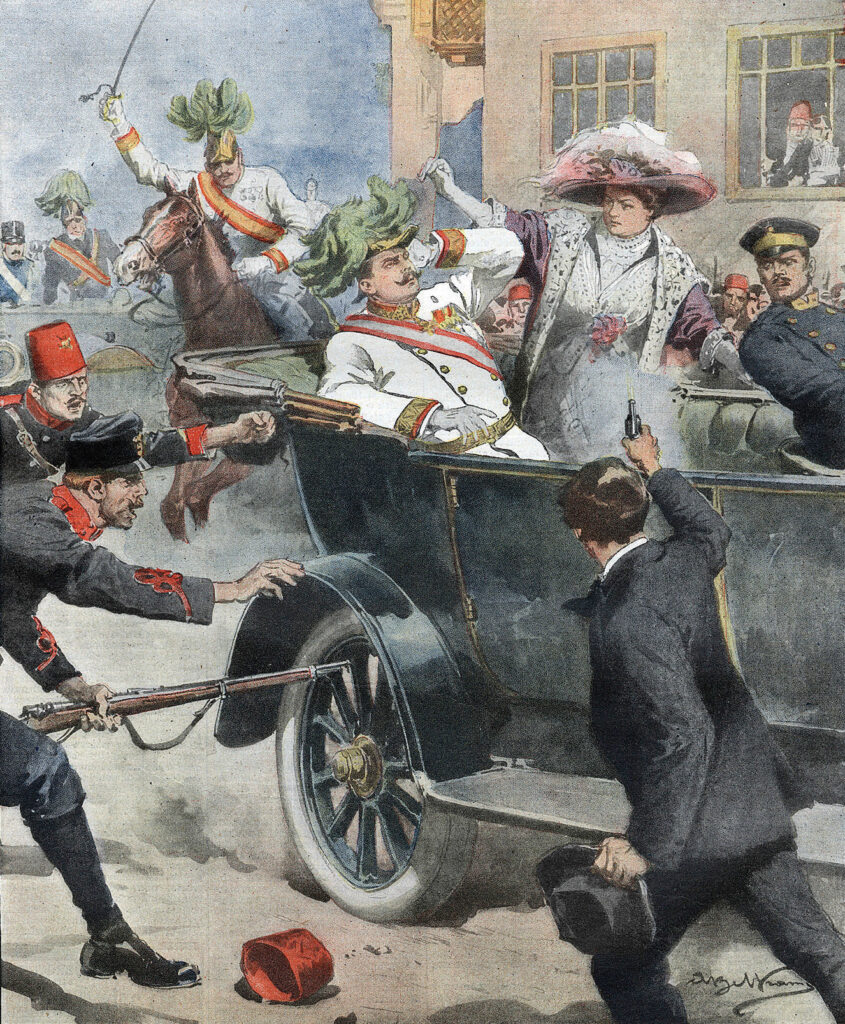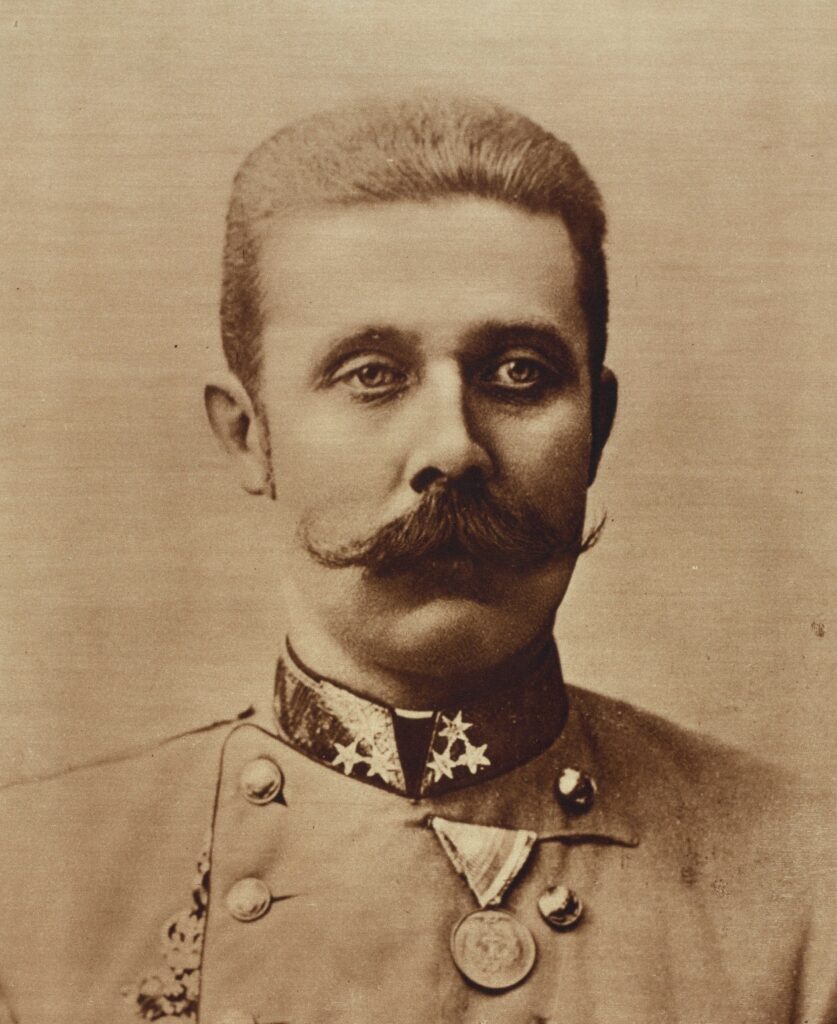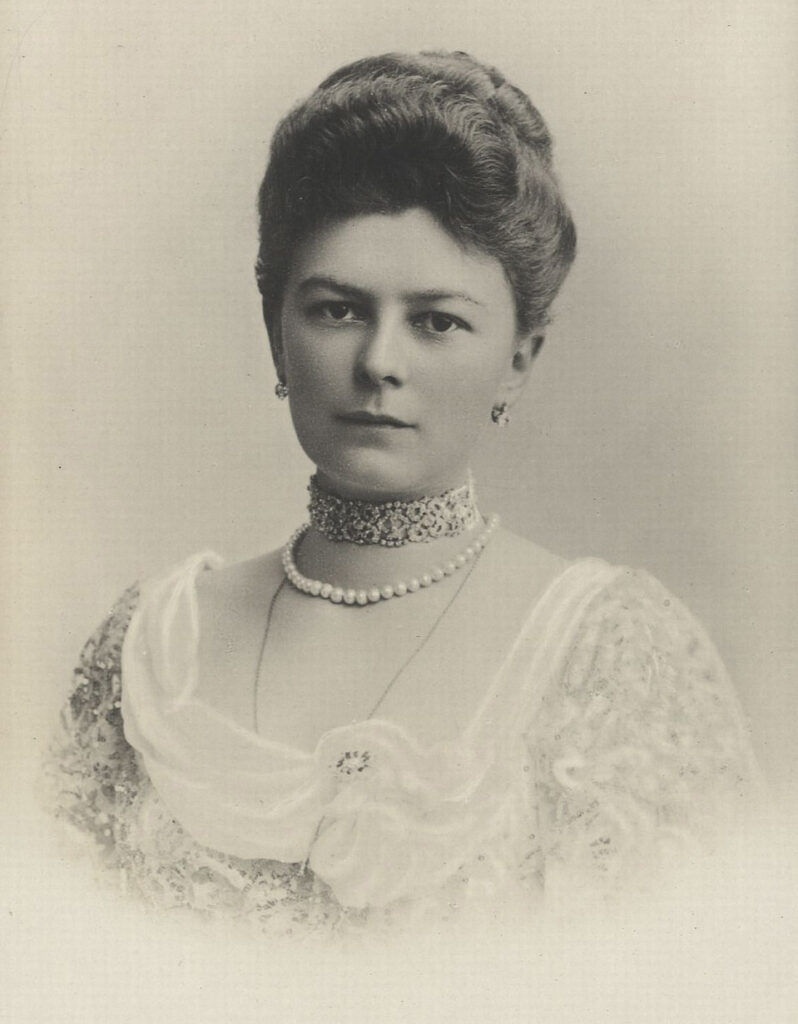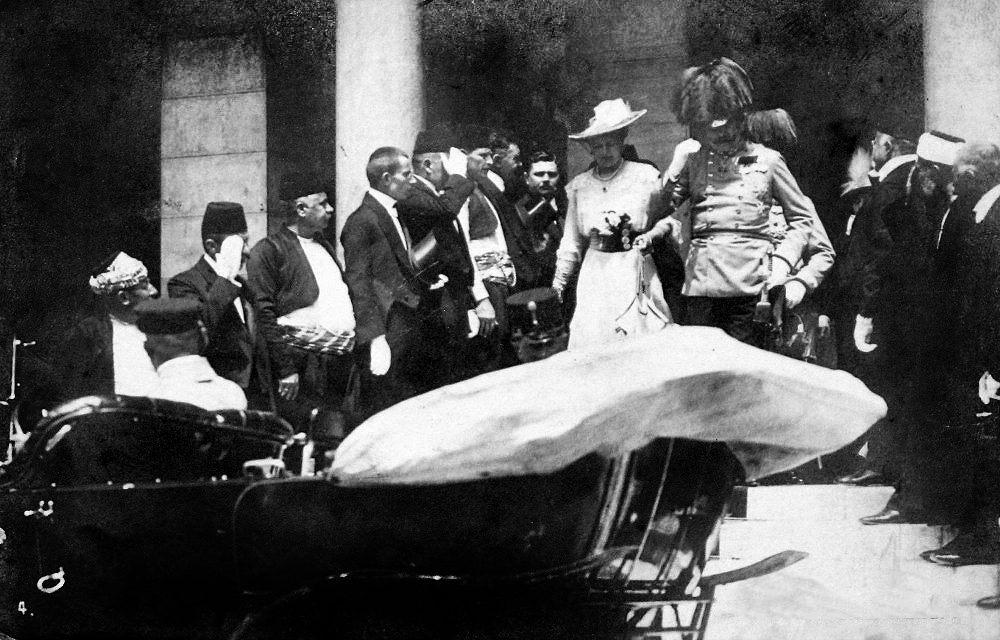A Look Back at the Event Which Was the Catalyst for the Great War
The assassination of Archduke Franz Ferdinand — the heir apparent to the Austro-Hungarian throne — was a critical moment that would eventually lead to the outbreak of World War I. It happened 110 years ago today. The political killing was orchestrated by a group of young Bosnian revolutionaries and would have far-reaching consequences for millions of people. It set in motion a chain of events that would ultimately plunge much of the world into a devastating global conflict.

Public Domain
https://commons.wikimedia.org/w/index.php?curid=29686990
Setting the Stage
The archduke and his wife Sophie were visiting Sarajevo — the capital of Bosnia and Herzegovina — on that fateful day, June 28, 1914. Bosnia had been annexed by Austria-Hungary in 1908, a move that was strongly opposed by Serbia, which had aspirations to expand its territory and influence in the region. A group of six assassins, members of a Bosnian nationalist organization called Young Bosnia, had been deployed to kill the archduke during his visit.
Failed Initial Attempt
As the archduke’s motorcade was making its way through the streets of Sarajevo, one of the assassins, Nedjelko Čabrinović, threw a bomb at the car. The bomb, however, bounced off the car and injured a number of people in the crowd instead. The Archduke and his entourage were unharmed. Undeterred, the other assassins continued with their plan.

Undated Photograph by Carl Pietzner — Public Domain,
https://commons.wikimedia.org/w/index.php?curid=428687
A Fatal Wrong Turn
Later, when the motorcade made a wrong turn and stopped directly in front of Gavrilo Princip, another member of the assassination plot, he seized the opportunity and shot the archduke and his wife at point-blank range. Both the archduke and his wife died from their wounds.

Image from a Circa 1900 Post Card by an Unknown Photographer
Public Domain,
https://commons.wikimedia.org/w/index.php?curid=63549766
Impact of the Archduke’s Passing
The assassination was a major blow to the Austro-Hungarian Empire, as Franz Ferdinand was seen as a modernizing force who might have steered the empire in a more federalist direction, giving more autonomy to its various ethnic groups. His death left a power vacuum that was exploited by more conservative and nationalist elements within the empire.
The Dominoes Begin to Fall
In the aftermath of the assassination, Austria-Hungary issued an ultimatum to Serbia, accusing it of complicity in the plot and demanding harsh concessions. When Serbia refused to comply fully, Austria-Hungary declared war on Serbia on July 28, 1914. This, in turn, triggered a series of alliances and counter-alliances among the major European powers, leading to the outbreak of World War I.

https://commons.wikimedia.org/w/index.php?curid=26951169
War Explodes Across Europe
The war that followed would be one of the deadliest conflicts in human history, with millions of soldiers and civilians losing their lives. The sheer scale of the destruction, as well as the introduction of new, more powerful weapons of war, would forever change the nature of warfare and the geopolitical landscape of Europe and the world.
* * * * * * * * * * * * * * * * * *
So there you have it. The assassination of Archduke Franz Ferdinand — while a seemingly isolated incident — was in many ways the spark that ignited the powder keg of tensions and rivalries that had been building in Europe for decades. The complex web of alliances, imperialist ambitions, and nationalist sentiments that characterized the early 20th century all coalesced in the aftermath of this tragic event, leading to a catastrophic global conflict that would reshape the course of world history.
By Steven Roberts


